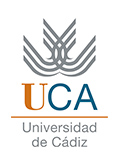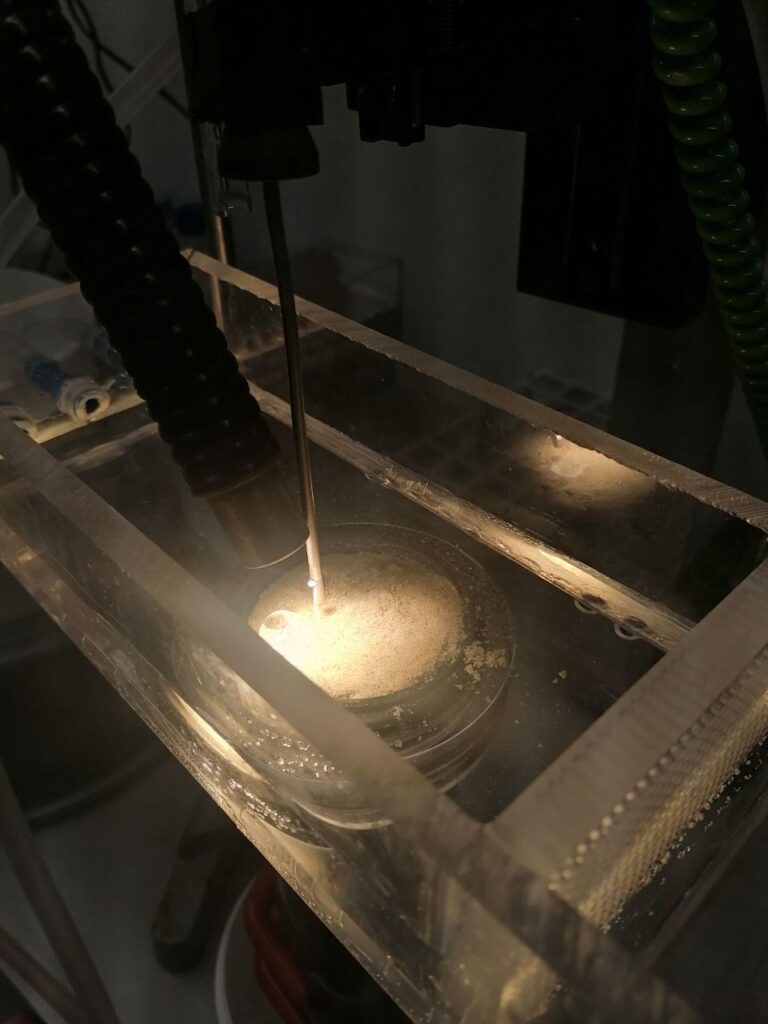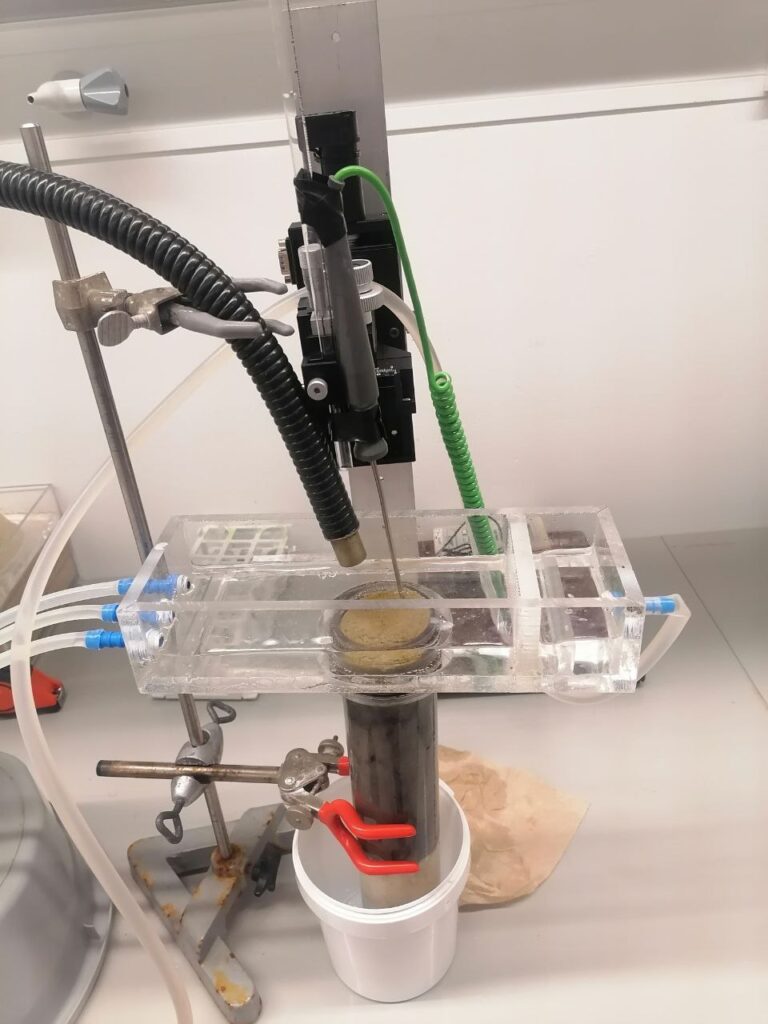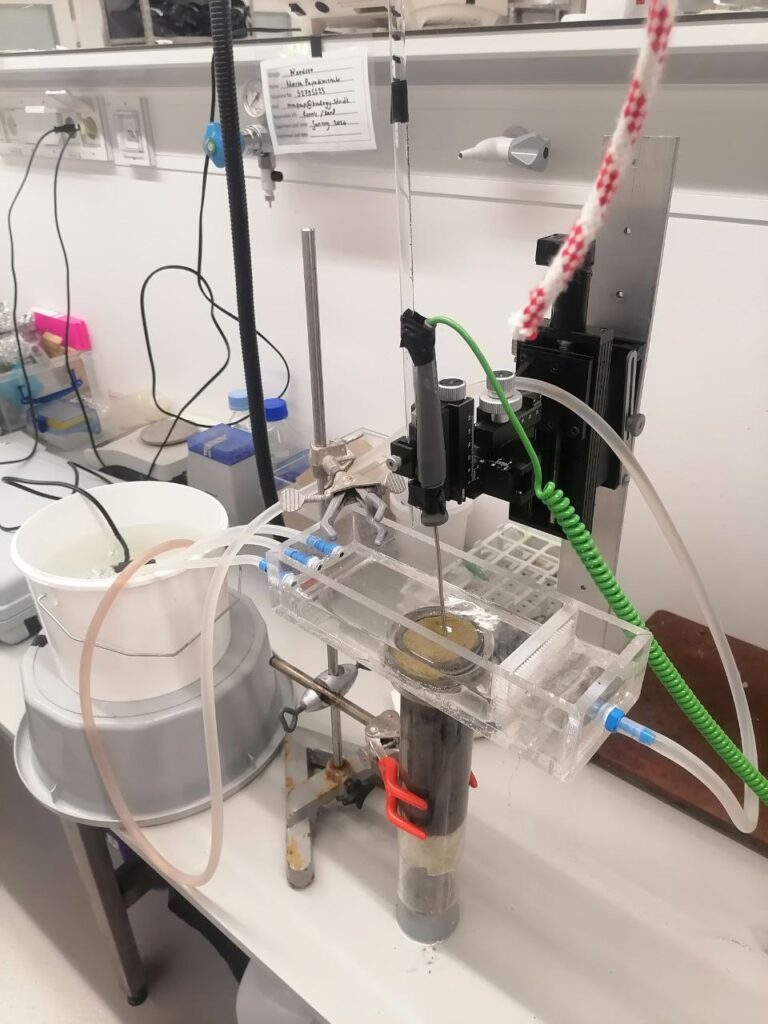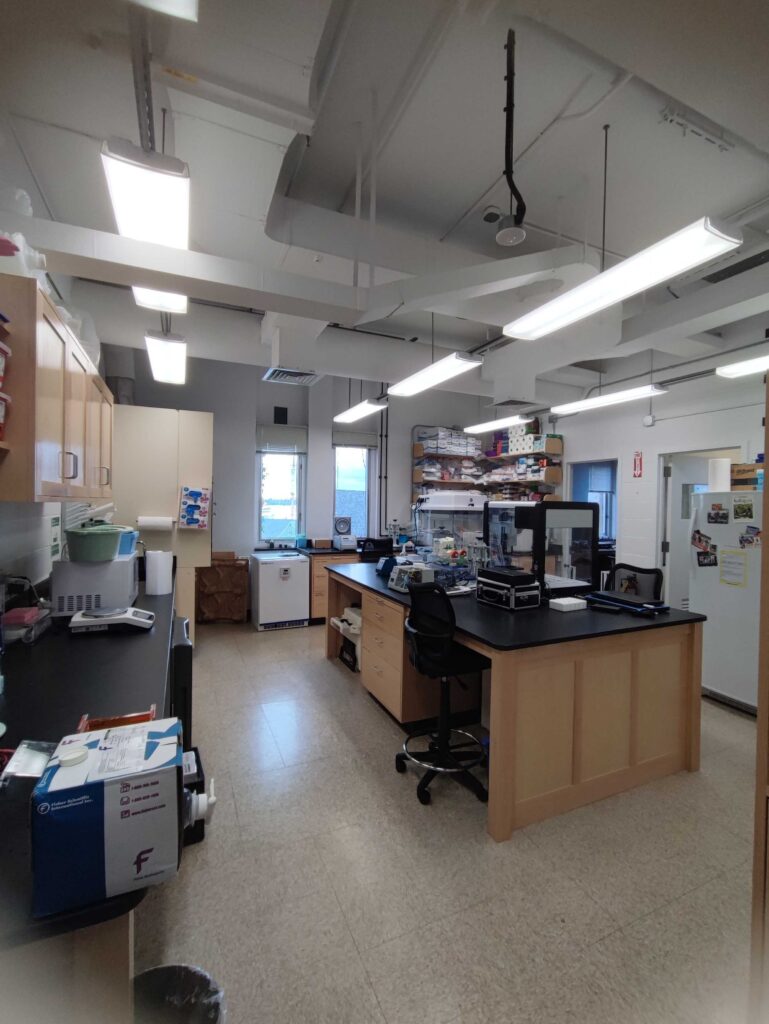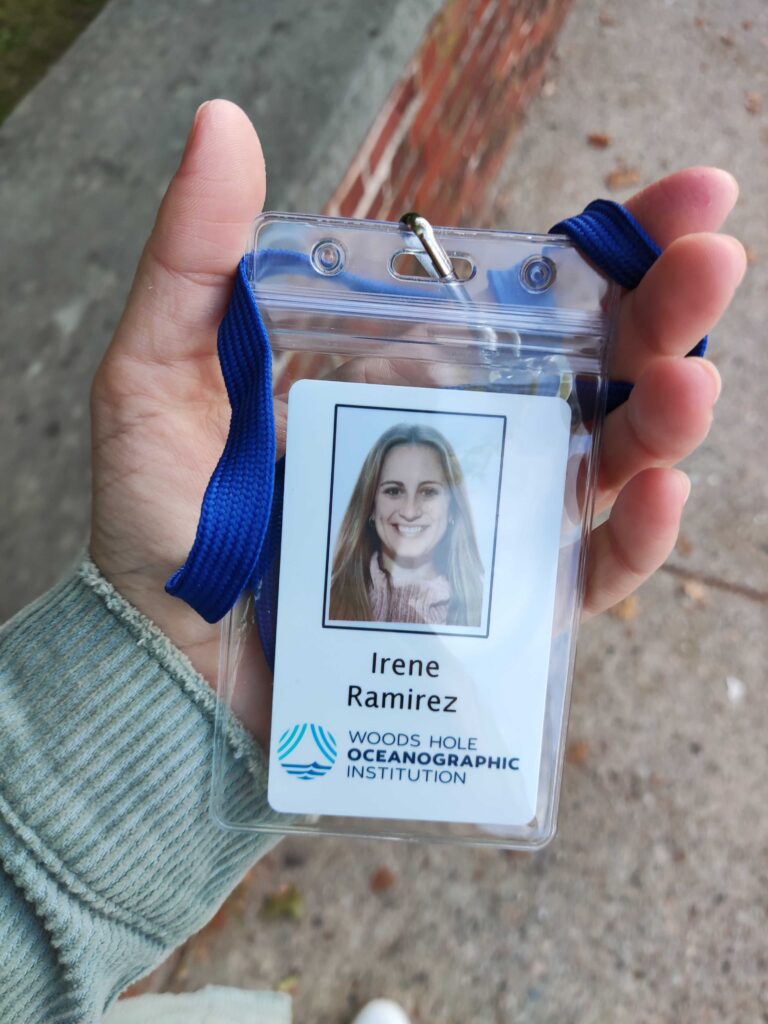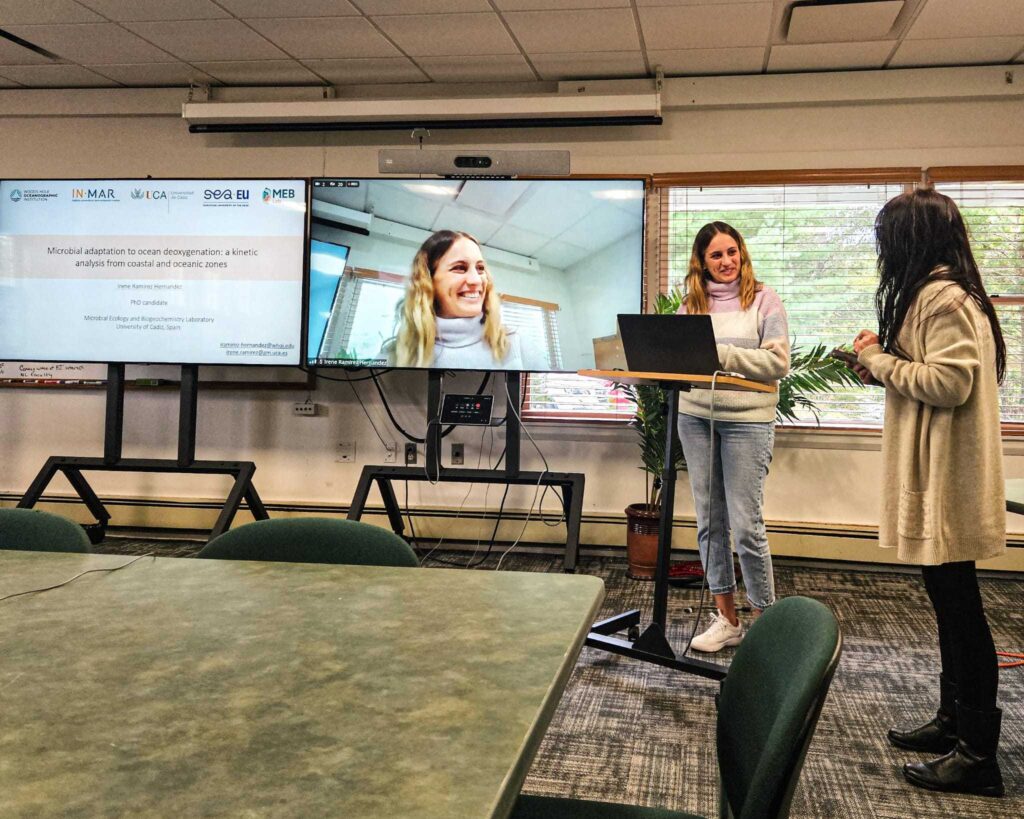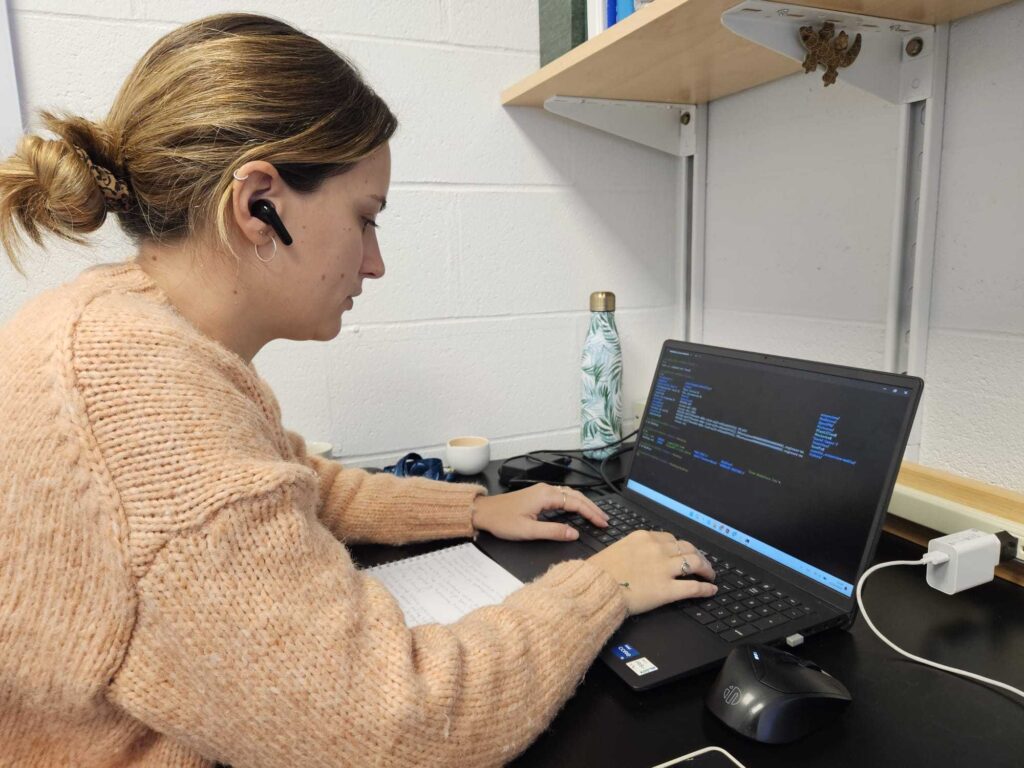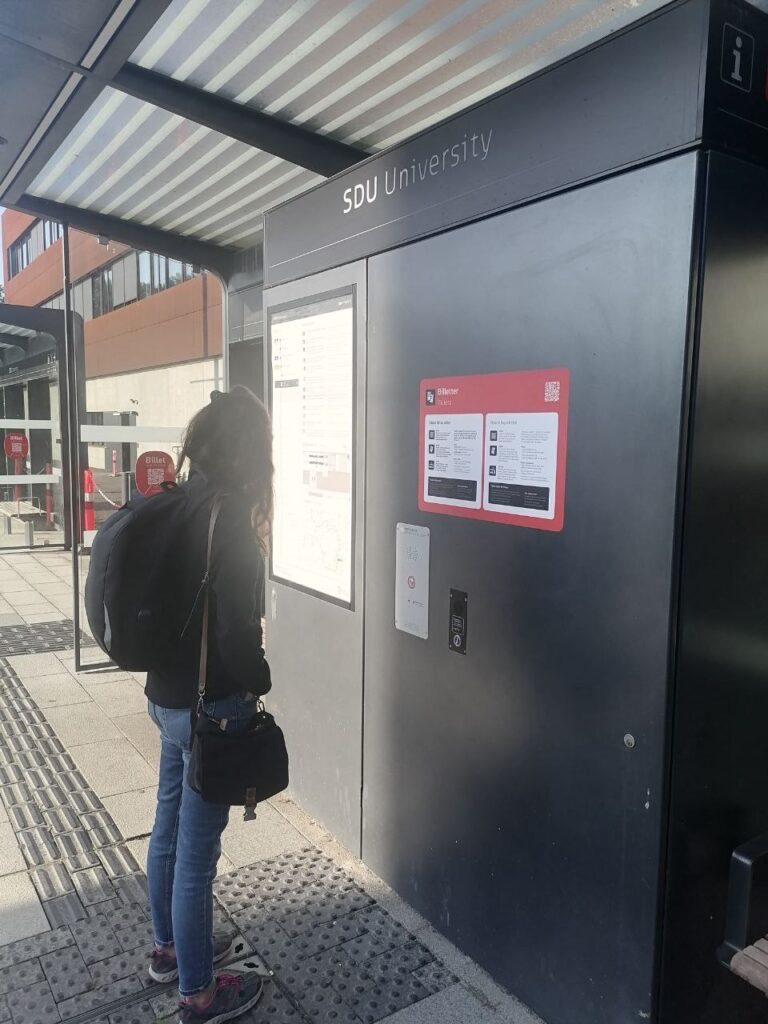Home » Conferences
Category Archives: Conferences
Sandra’s stay at SDU
After five months in Odense (Denmark), I have completed my stay at the University of Southern Denmark (SDU), where, in addition to learning how Aquatic Eddy Covariance (AEC) works, I conducted two experiments that provide key information on its application in intertidal zones. Although AEC is an innovative method for measuring O2 fluxes and studying various dynamics in aquatic ecosystems, its use remains limited due to its complexity. Internationally, only a few laboratories have adopted this technique, and in Spain, only one research institution has implemented it to date.
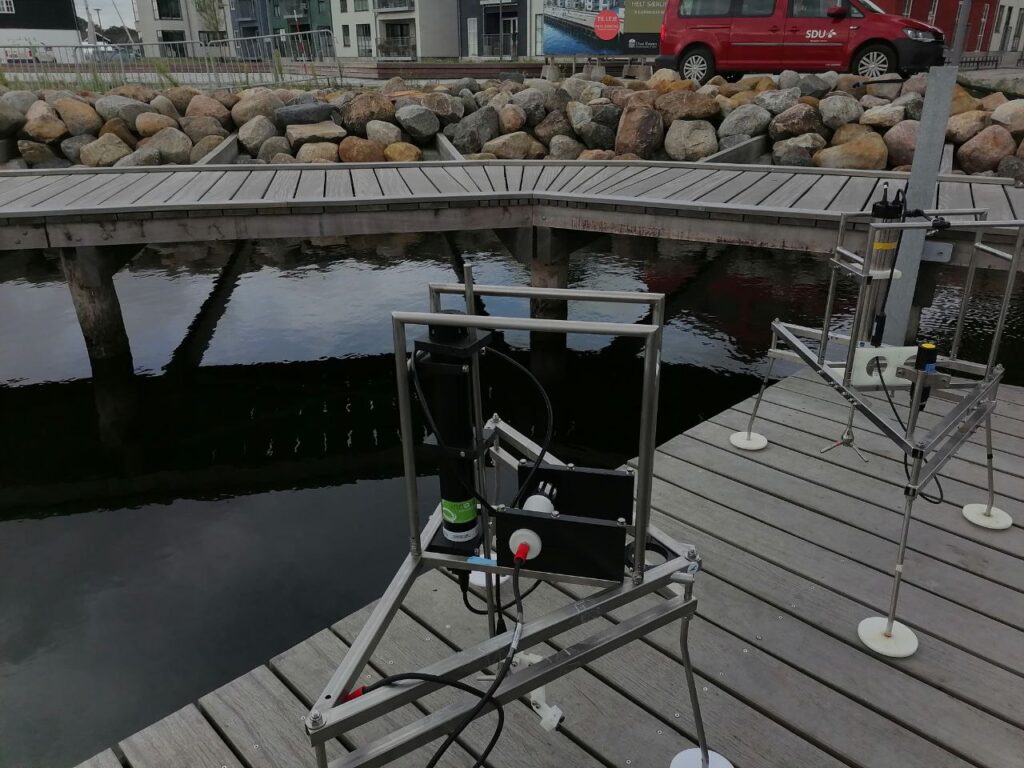
Aquatic Eddy covariance. A bit of an introduction….
The AEC is a non-invasive method that allows the measurement of benthic biogeochemical fluxes with a high resolution, during days or weeks continuously. This method is a relatively new technique (Berg et al., 2003). Over the last two decades, the quality of benthic O2 flux measurements by AEC has improved by incorporating new rapid response systems that measure O2. Due to their complexity, O2 measurement systems used for AEC must undergo rigorous testing under well-defined laboratory and field conditions to assess performance, reliability and potential limitations (Berg et al., 2016; Chipman et al., 2012; McGinnis et al., 2011).
An example of a new O2 measurement system is the AquapHOx-LX logger (PyroScience, GmbH; referred to as AquapHOx). It is an optical submersible meter, which has been designed to perform high resolution O2 measurements underwater, making it a suitable option for collecting robust AEC data.
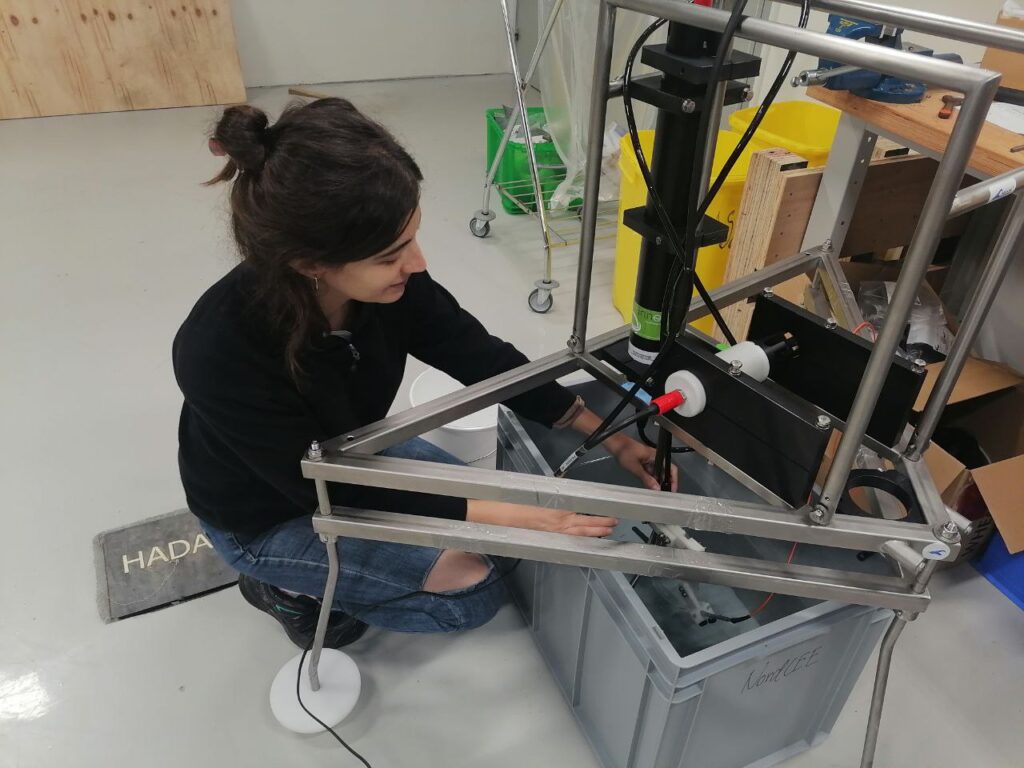
In intertidal zones, the use of the AquapHOx system can present challenges due to temperature variations between the sediment and the water column. This can occur because, during low tide, the sediment is directly exposed to solar radiation, which causes significant heating of the sediment surface. When the tide rises and the sediment returns underwater, the temperature difference can generate heat fluxes from the seabed to the water column. These thermal fluctuations, however small, can affect the O2 signal. This potential error in the O₂ signal can alter the interpretation of biogeochemical fluxes in these areas.
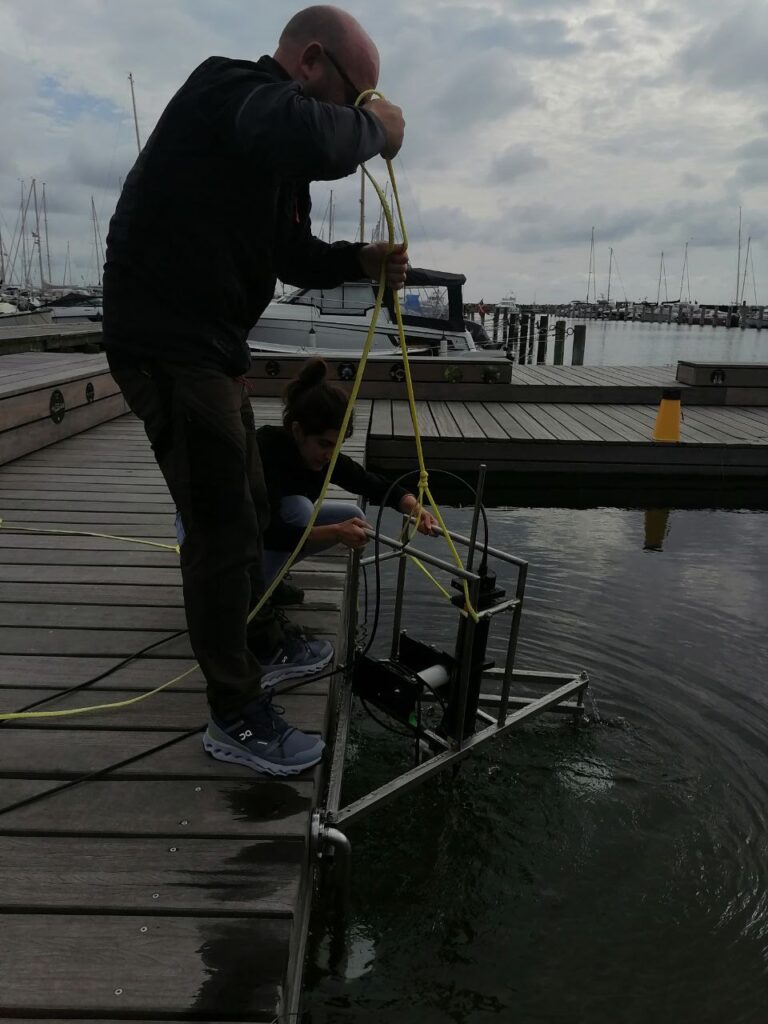
Since AEC is a relatively new technique (Berg et al., 2003), there are hardly any studies in intertidal zones (Volaric et al., 2020) that quantify the importance of heat fluxes between the sediment and the water column. Therefore, it is necessary to test:
- how much the O2 signal is affected by temperature, i.e., what percentage of the oxygen fluctuations are driven by natural oxygen changes versus temperature effects, and
- how long it takes for the sediment surface and water to equilibrate in temperature.
To verify this, we performed two short experiments. The first consisted of quantifying the effect of temperature on the O2 signal; the second consisted in quantifying the time it takes for the sediment surface temperature to equilibrate with the water column.
Test 1. Evaluating the response of the O2 signal to temperature changes.
The sensitivity of the O₂ sensor to thermal variations was evaluated following the procedure described by Granville et al. (2023).
Test 2. Quantifying the time, it takes for the sediment surface temperature to equilibrate with the water column after the sediment surface was exposed to high temperature
This experiment aimed to measure how long sediment takes to reach equilibrium with the water column after being exposed to high temperatures, simulating low tide conditions. Additionally, it also examined whether sediment color affects heat absorption.
To do that, five sediment cores of different color were collected from Odense Fjord, Denmark, acclimatized for a day. After that, we performed different temperature profiles, with and without a water column, to obtain initial conditions.
The sediment surfaces were then exposed to high light intensity (simulating solar radiation) for 2 hours without water. Afterward, temperature profiles were measured every 20 minutes using a temperature probe until the temperatures returned to initial levels. The process was then repeated for each core in the presence of a water column.
After these experiment, we can conclude that, although, the sediment surface may heat up more in the absence of the water column and in darker sediments, the recovery time showed no observable differences. Furthermore, considering that the temperature of the water column and of the uppermost layers of the sediment quickly returned to their initial conditions, it can be concluded that AquapHOx can be used in intertidal zones.
Irene at WHOI
Irene’s doctoral thesis investigates the effects of decreasing oxygen conditions on microbial communities through the aerobic respiration kinetics and how these communities adapt at the oxic-anoxic interfaces. As a part of her PhD work, Irene has participated in two oceanographic expeditions to oxygen minimum zones (OMZs) in the North and South Pacific Ocean. During these campaigns aboard scientific research vessels, she performed on-site experiments and collected samples for molecular biology analysis, aiming to understand microbial behaviour at the genetic level.
Currently, Irene is undertaking a predoctoral research stay at the prestigious Woods Hole Oceanographic Institution (Massachusetts, USA) from September 20 to December 20, 2024, under the supervision of Maria G. Pachiadaki, an expert in molecular biology, particularly in metagenomics and metatranscriptomics of marine environments. During this stay, Irene is conducting DNA and RNA extractions to describe microbial communities, as well as identifying key genes and enzymes involved in their adaptation to decreasing oxygen conditions. This research sheds light on how microorganisms adjust to oxygen-depleted oceans, where critical biogeochemical cycles and functioning of the world’s oceans depend heavily on microbial processes.
Sandra’s research stay in SDU
From 1 May until 1 October 2024, Sandra Rizzo, one of the pre-doctoral students from our laboratory, is visiting the University of Southern Denmark (SDU, Odense) on an international stay to learn the use of the novel Aquatic Eddy covariance (AEC) technique. Sandra will work under the supervision of Profs. Karl Attard and Ronnie Glud.
AEC is a direct and non-invasive method that allows the quantification of benthic metabolism rates by measuring oxygen fluxes with a high resolution, during days or weeks and continuously.
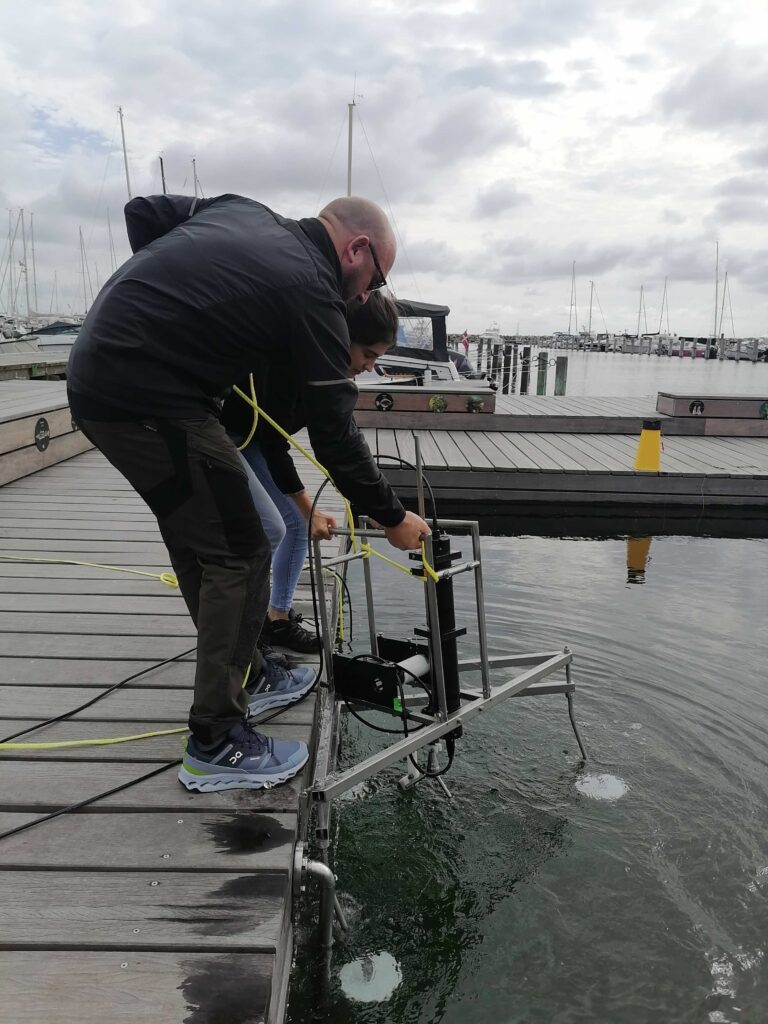
The stay at SDU will allow us to transfer the know how to our laboratory, which only a few laboratories at international level have and extend our collaboration with our Danish colleagues. Furthermore, in practical terms, the use of the AEC method will facilitate the monitoring of benthic metabolism rates in different habitats in our area and to study the effect of extreme wind events, without the logistical problems associated with sampling under such conditions. Our new project MULTIFLUX will focus heavily on this aspect.
MEBL in the meeting of the European Geoscience Union (Vienna, Austria)
April 2018
As it has been customary year after year, the capital of Austria hosted one of the most important events for Earth’s scientists of many areas (Biogeochemistry, Geophysics, Oceanography, etc…).
During almost a week, up to 4.776 talks and 11.128 posters were presented place in this spectacular, useful and rigorous conference. Of course, our laboratory could not miss the chance to update and share the most recent insights with other colleagues.
Three members of our research team, Prof. Alfonso Corzo, Dr. Miguel Lara and the PhD student Sara Haro flew to Vienna to attend the EGU 2018 General Assembly from the 8-13 April 2018. Presentations covered several aspects of the response of microphytobenthos to light and tidal conditions: Potential changes in the photosynthetic efficiency, the transitional effects of sediment desiccation and an innovative model of self-shading were the three topics exposed.
More info and a downloadable version of the abstracts are linked here:
Effects of sediment desiccation (Oral presentation)
At the V International Symposium of Marine Sciences
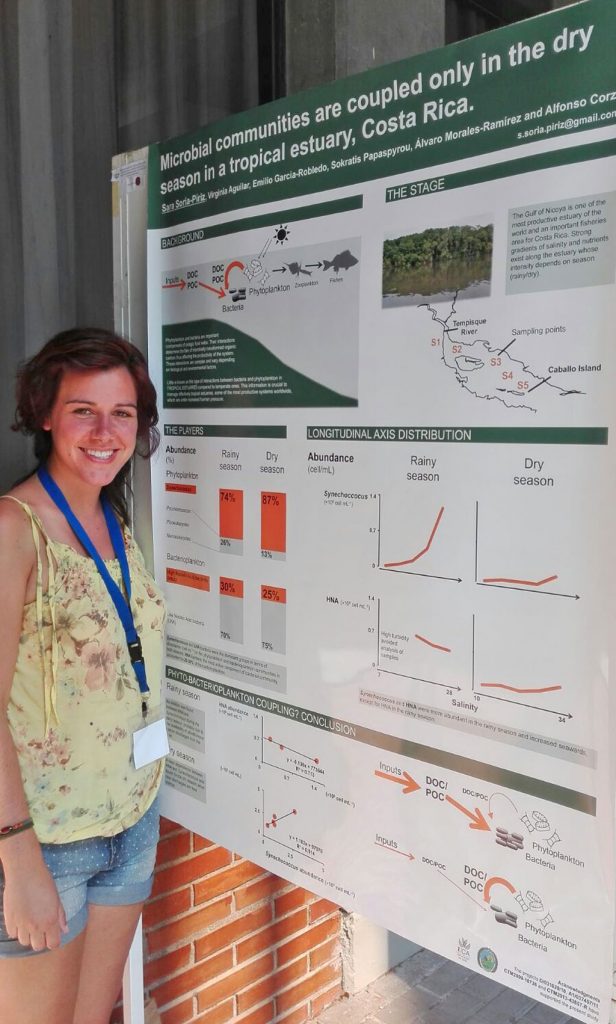
From 20th to 22th last July, our PhD student Sara Soria attended the V International Symposium of Marine Sciences at University of Alicante (Spain). She presented a poster titled “Microbial communities are coupled only in the dry season in a tropical estuary, Costa Rica“. The study focused on the distribution and abundance of phytoplankton and bacteria along the tropical estuary of the Gulf of Nicoya, Costa Rica, one of the most productive estuaries of the world and an important fisheries area for Costa Rica.
Strong gradients of salinity and nutrients exist along the estuary whose intensity depends on season (rainy/dry). These interactions determine the fate of microbially transformed organic carbon and thus affect the productivity of the system. Furthermore, these complex interactions vary depending on biological and environmental factors. This information is crucial to manage effectively tropical estuaries, some of the most productive systems worldwide, which are under increased human pressure.
